The world of mutual funds involves various players working behind the scenes to ensure smooth operations and seamless transactions for investors. One such crucial entity in the Indian mutual fund industry is the Registrar and Transfer Agent (RTA). While investors are primarily concerned with returns and investment options, RTAs play a pivotal role in ensuring that all administrative and record-keeping aspects of mutual fund transactions are handled efficiently.
In this comprehensive guide, we will explore what RTAs are, their functions, the services they offer, and how they impact mutual fund investors in the Indian share market. We will also delve into the regulatory framework governing RTAs and provide real-world examples of how these agents operate within the system.
What is a Registrar and Transfer Agent (RTA)?
A Registrar and Transfer Agent (RTA) is an organization responsible for maintaining the records of mutual fund unit holders, processing transactions, and providing services related to account management, dividend payouts, and investor communication. RTAs act as intermediaries between mutual fund companies (also known as asset management companies or AMCs) and investors, ensuring that all administrative tasks related to mutual funds are handled smoothly.
Key Functions of RTAs:
- Processing Transactions: RTAs handle the processing of purchase, redemption, and transfer of mutual fund units.
- Maintaining Investor Records: They maintain a database of all mutual fund investors and their unit holdings.
- Handling Investor Services: RTAs manage services like issuing account statements, resolving investor queries, and providing details about fund performance.
- Dividend and Payout Management: They facilitate the disbursement of dividends and redemption payouts to investors.
RTAs are vital for the smooth functioning of the mutual fund industry, as they help reduce the administrative burden on fund houses, allowing them to focus on investment strategies.
Roles and Responsibilities of RTAs in Mutual Funds
The role of an RTA is multifaceted, and their responsibilities extend beyond basic record-keeping. Below are the primary duties performed by RTAs:
1. Account Maintenance
RTAs maintain detailed records of all mutual fund unit holders. This includes information such as the number of units held, the date of purchase, the transaction history, and any updates to the investor’s account details.
2. Processing Investor Transactions
Whether an investor is buying, redeeming, or switching mutual fund units, the RTA ensures that these transactions are processed accurately and on time. They are responsible for updating the investor’s account and issuing confirmation statements.
3. Issuing Account Statements
RTAs regularly provide account statements to investors, detailing their holdings, transaction history, and fund performance. These statements are critical for investors to track the growth of their investments and make informed decisions.
4. Managing Dividends and Redemptions
RTAs manage the distribution of dividends and redemption payouts. When a mutual fund declares dividends, the RTA calculates the payout for each investor and ensures timely distribution.
5. Handling Investor Queries and Complaints
RTAs act as the first point of contact for investors who have queries about their mutual fund holdings. They also resolve issues related to account discrepancies, missing dividends, or incorrect statements.
6. KYC (Know Your Customer) Compliance
RTAs help mutual funds comply with KYC regulations by ensuring that all necessary documentation for investors is collected and verified. This is crucial for maintaining the integrity of the financial system and preventing money laundering.
Example of RTA Services in Action
| Services Provided by RTAs | Real-World Example |
|---|---|
| Transaction Processing | An investor purchases units in a mutual fund, and the RTA updates their account. |
| Account Statement Issuance | RTAs provide quarterly account statements showing holdings and transactions. |
| Dividend Payout Management | RTAs manage the distribution of dividends when a mutual fund announces payouts. |
| Handling Investor Queries | An investor contacts the RTA for clarification on their mutual fund statement. |
Leading Registrar and Transfer Agents in India
India has several well-established RTAs that provide services to mutual fund investors. These RTAs work with multiple asset management companies (AMCs) to ensure the smooth functioning of mutual fund transactions.
1. CAMS (Computer Age Management Services)
CAMS is one of the largest RTAs in India, providing services to a majority of the mutual funds in the country. It handles millions of investor accounts and offers a wide range of services, including transaction processing, investor record maintenance, and compliance with regulatory requirements.
2. KFintech
KFintech is another major player in the Indian RTA industry, offering a comprehensive suite of services to mutual fund investors. KFintech serves several leading AMCs and is known for its advanced technology infrastructure and user-friendly investor services.
3. Sundaram BNP Paribas Fund Services
Sundaram BNP Paribas is another RTA known for providing efficient and transparent services to mutual fund investors. It focuses on delivering high-quality services with a strong emphasis on compliance and operational efficiency.
Importance of RTAs in the Indian Mutual Fund Industry
RTAs play a critical role in the mutual fund ecosystem, contributing to the overall efficiency and transparency of the market. Here are some of the key reasons why RTAs are indispensable:
1. Operational Efficiency
By outsourcing administrative tasks to RTAs, mutual fund companies can focus on their core responsibility of managing investments. This enhances the overall operational efficiency of the fund house.
2. Investor Convenience
RTAs provide investors with easy access to account information, transaction processing, and customer support. This improves the overall investor experience and ensures that their needs are met in a timely manner.
3. Regulatory Compliance
RTAs help mutual funds comply with regulatory requirements, including KYC and anti-money laundering (AML) norms. They ensure that all investor records are up-to-date and in compliance with the law.
4. Data Security
Since RTAs handle sensitive investor data, they employ robust security measures to ensure that this information is protected from unauthorized access or breaches. This is crucial for maintaining investor trust in the mutual fund industry.
Regulatory Framework Governing RTAs in India
In India, RTAs are regulated by the Securities and Exchange Board of India (SEBI). SEBI has established guidelines to ensure that RTAs operate in a transparent and efficient manner. These regulations cover areas such as investor protection, data security, and operational standards.
SEBI’s Key Regulations for RTAs:
- Registration Requirement: RTAs must be registered with SEBI and comply with its regulatory framework.
- KYC Norms: RTAs are required to follow stringent KYC norms to verify the identity of investors.
- Data Protection: RTAs must have robust data protection measures in place to safeguard investor information.
- Complaint Resolution: RTAs must provide a mechanism for resolving investor complaints and disputes in a timely manner.
Historical Data on RTA Growth in India
The mutual fund industry in India has witnessed significant growth over the past decade, and RTAs have played a pivotal role in supporting this expansion. Below is a table showing the growth in the number of mutual fund folios (accounts) handled by RTAs over the years:
| Year | Number of Mutual Fund Folios (in crores) | Growth Rate (%) |
|---|---|---|
| 2015 | 4.5 | 12 |
| 2016 | 5.0 | 11 |
| 2017 | 6.1 | 22 |
| 2018 | 7.5 | 23 |
| 2019 | 8.4 | 12 |
| 2020 | 9.2 | 9 |
| 2021 | 10.6 | 15 |
The data shows that as mutual fund investments have grown in popularity, the role of RTAs has become even more crucial in managing the increasing number of investor accounts.
How RTAs Impact Investors in the Indian Mutual Fund Market
For individual investors, the services provided by RTAs directly impact their mutual fund experience. Below are some key ways RTAs influence investors:
1. Simplified Transaction Process
RTAs streamline the process of buying and redeeming mutual fund units, making it easier for investors to manage their portfolios.
2. Quick Access to Information
With the help of RTAs, investors can easily access their account statements, transaction history, and other relevant information through online portals.
3. Timely Dividend Payouts
RTAs ensure that investors receive their dividends on time, contributing to a smooth investment experience.
4. Support in Case of Discrepancies
If an investor notices any discrepancies in their mutual fund account, RTAs provide prompt support to resolve the issue.
Conclusion: Why RTAs Are Essential for Mutual Fund Investors
Registrar and Transfer Agents are the backbone of the mutual fund industry, ensuring that all administrative tasks are handled efficiently and transparently. From processing transactions to maintaining investor records and managing dividends, RTAs play a pivotal role in the smooth functioning of mutual funds in India.
For investors, understanding the role of RTAs can help them appreciate the convenience and efficiency that these agents bring to the table. Whether you’re a seasoned investor or new to the world of mutual funds, RTAs ensure that your investment journey is hassle-free, providing you with the tools and support needed to achieve your financial goals.

What are Dividend Yield Mutual Funds?
Dividend yield mutual funds are designed for investors seeking a steady income source from their …

What Is Children’s Mutual Fund?
Children’s mutual funds are specially designed to help parents and guardians build a secure financial …

What are Alpha and Beta in Mutual Funds?
In mutual fund investing, understanding performance metrics like Alpha and Beta is essential for assessing …

Sovereign Gold Bonds vs Mutual Funds
For Indian investors seeking diverse investment opportunities, both Sovereign Gold Bonds (SGB) and mutual funds …
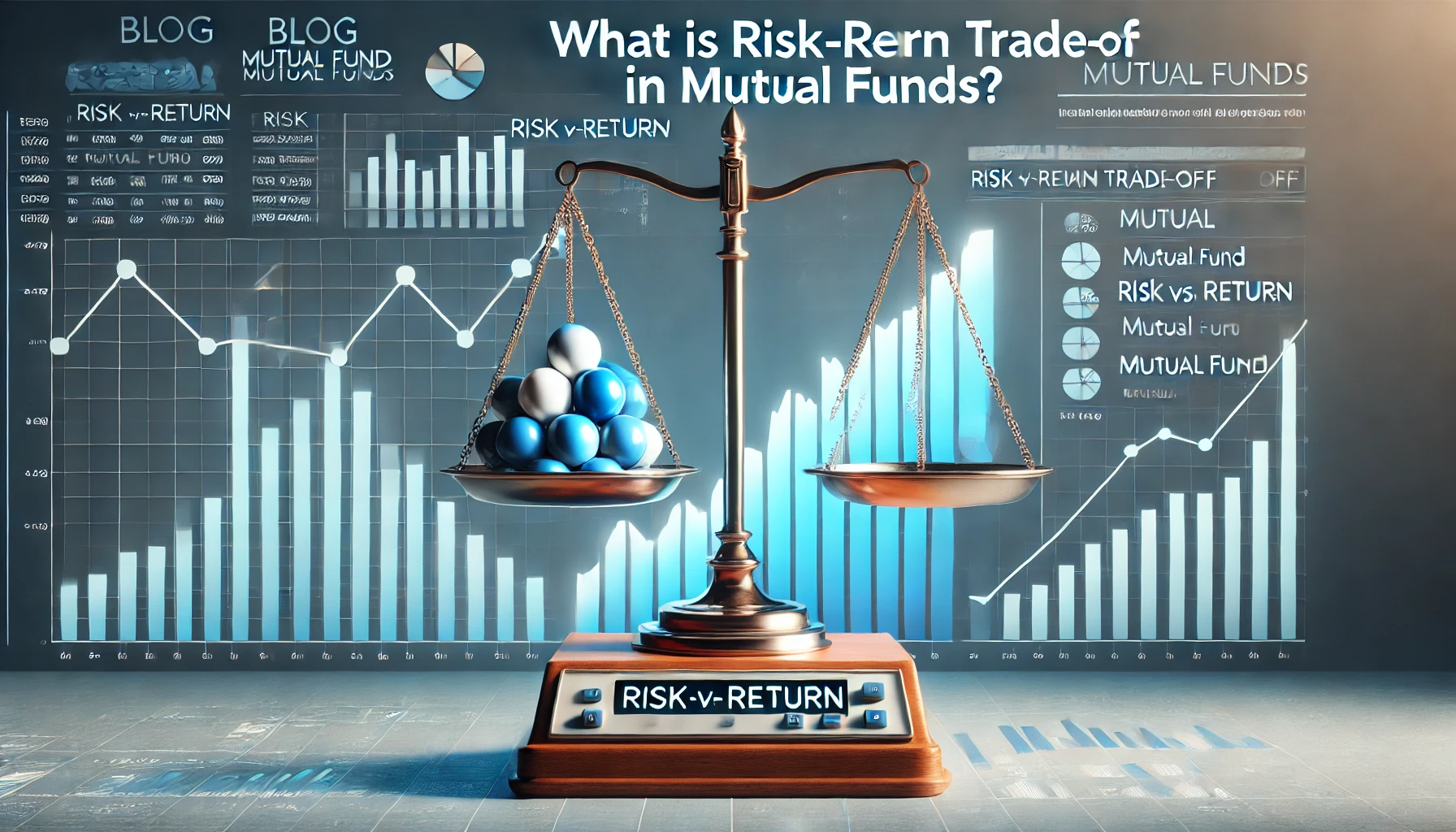
What Is Risk-Return Trade-Off in Mutual Funds?
In mutual fund investments, the risk-return trade-off is a fundamental concept that helps investors balance …

What is a Mutual Fund Manager?
A mutual fund manager plays a crucial role in the success of a mutual fund, …

Debt vs Equity Funds
Investing in mutual funds offers various avenues, with debt and equity funds standing out as …

What are the Different Types of Index Funds?
Index funds have gained popularity among Indian investors for offering a low-cost, diversified approach to …

What is CAMS KRA?
CAMS KRA (Computer Age Management Services KYC Registration Agency) is a crucial player in India’s …

What is Yield to Maturity?
Yield to Maturity (YTM) is a crucial concept in fixed-income investments, especially in mutual funds …

What are Thematic Funds?
In the Indian share market, Thematic Funds have gained popularity as specialized mutual funds tailored …

What is Broad Market Index Fund?
In the Indian share market, Broad Market Index Funds offer a straightforward, cost-effective way for …

What are Retail Fund?
In the Indian financial market, Retail Funds are a key category of mutual funds designed …

What is Regional Fund?
In the evolving landscape of the Indian financial market, Regional Funds have emerged as a …
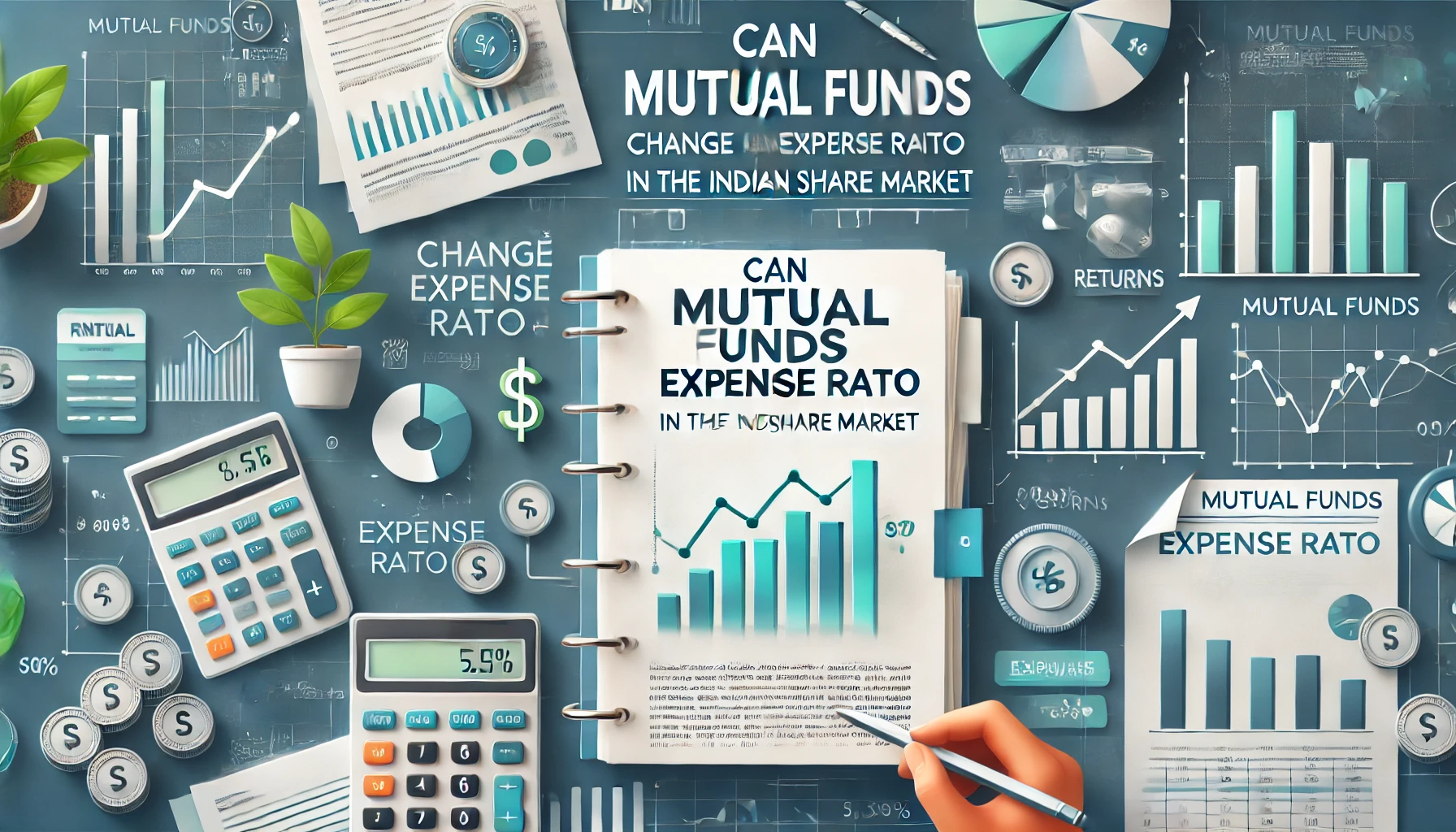
Can Mutual Funds Change Expense Ratio?
Investing in mutual funds involves paying various fees, one of the most important being the …

What is the Inverted Yield Curve?
In financial markets, the yield curve is a key indicator that investors and economists use …

What are Dynamic Asset Allocation Funds?
Dynamic asset allocation funds, also known as balanced advantage funds, are becoming increasingly popular in …

What are Short Term Capital Gains on Mutual Funds?
Investing in mutual funds has become an increasingly popular way for investors to diversify their …

What are Corporate Bond Funds?
Corporate bond funds are a type of debt mutual fund that invests primarily in high-rated …

What Are Money Market Funds?
Money Market Funds (MMFs) are a type of mutual fund that invests in short-term debt …

What is a Fund of Funds?
A Fund of Funds (FoF) is a mutual fund that invests in other mutual funds …

What is a Credit Risk Fund?
A credit risk fund is a type of debt mutual fund that primarily invests in …

What are Gold Funds?
Gold funds are a type of mutual fund that invests in gold-related assets, including gold …
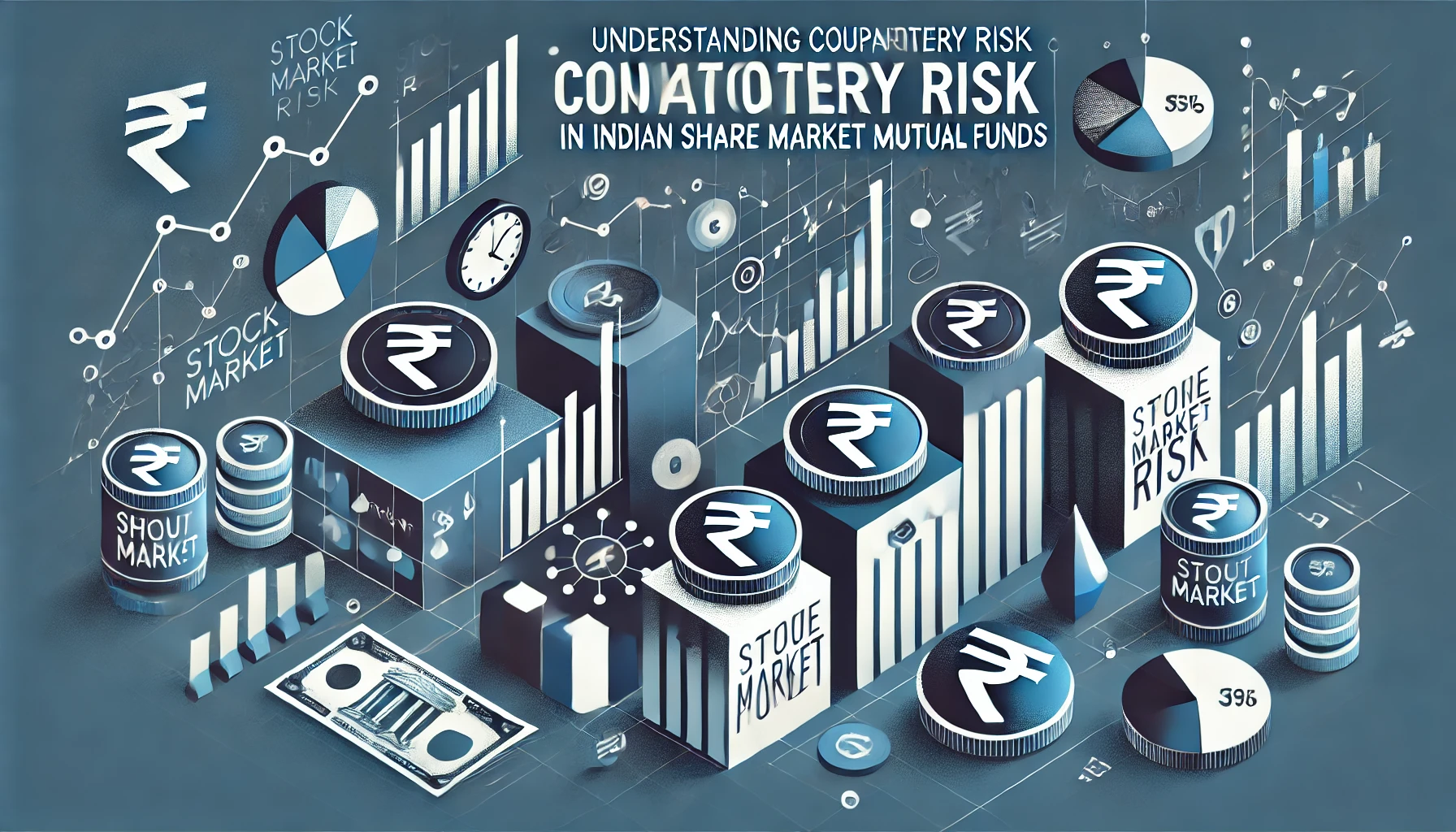
What is Counterparty Risk?
In the world of investments, especially in Indian share market mutual funds, the concept of …
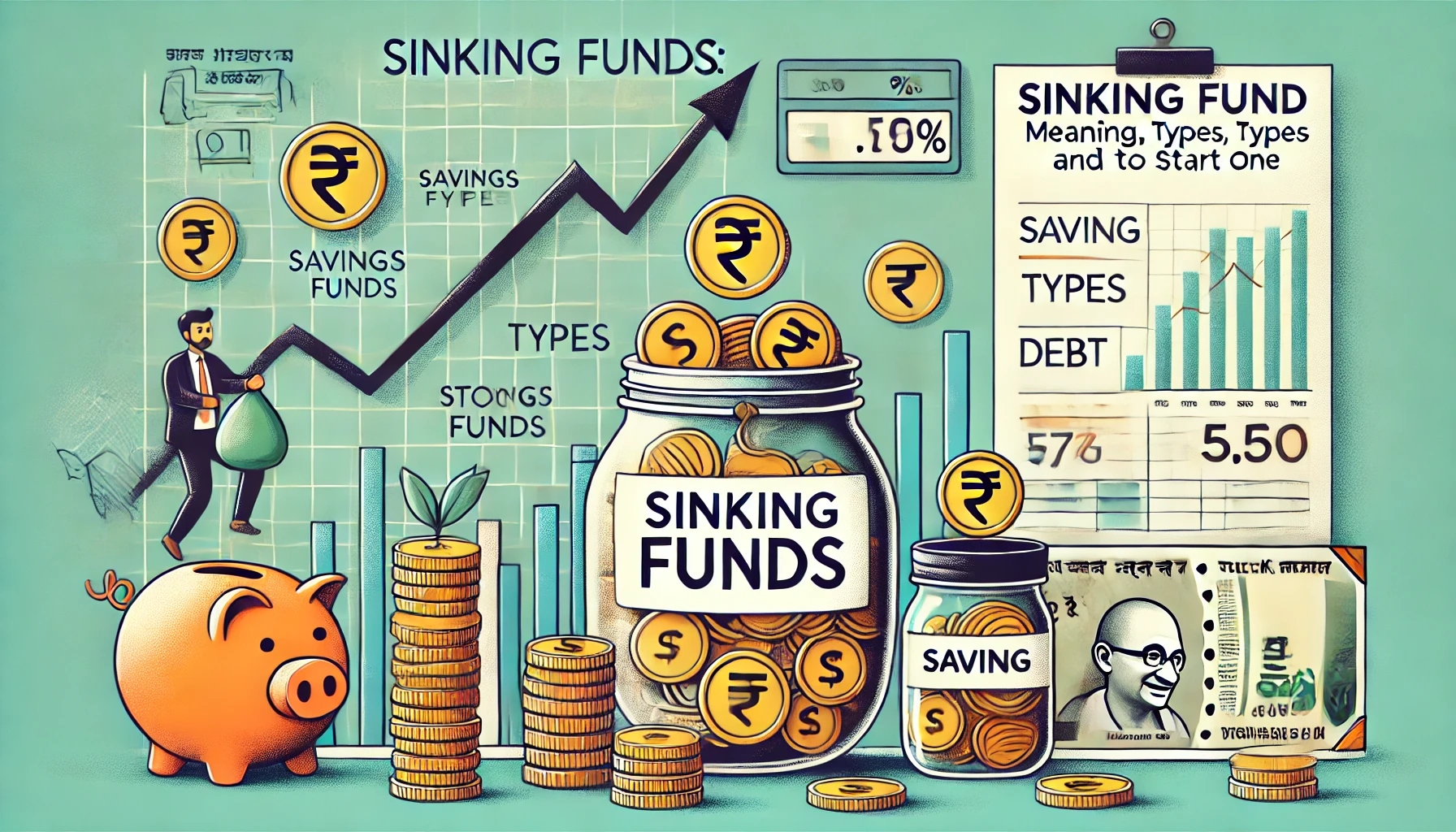
What is a sinking fund?
In the world of finance and investments, planning ahead for future liabilities is crucial for …
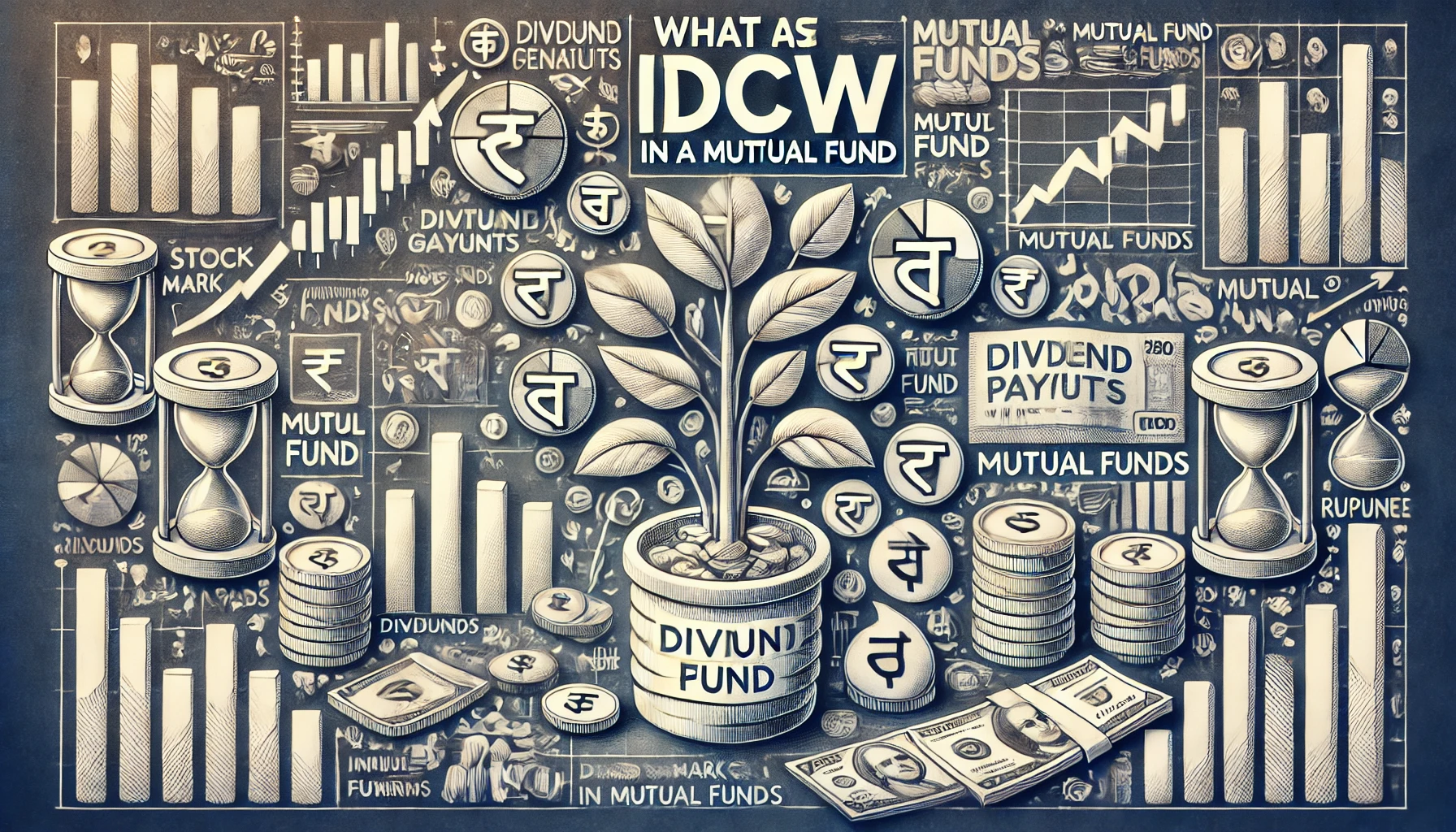
What is IDCW in a Mutual Fund?
Investing in mutual funds offers several options for investors looking to grow their wealth over …

What are growth funds?
Growth funds are a type of mutual fund that primarily focuses on capital appreciation by …

CAGR vs Absolute Returns
When investing in mutual funds, understanding your returns is essential to make informed decisions. Two …

What is a Capital Protection Fund?
A Capital Protection Fund (CPF) is a type of hybrid mutual fund designed to safeguard …

What Is Rupee Cost Averaging in Sip?
Rupee Cost Averaging (RCA) is a systematic investment strategy used in mutual fund investments, particularly …
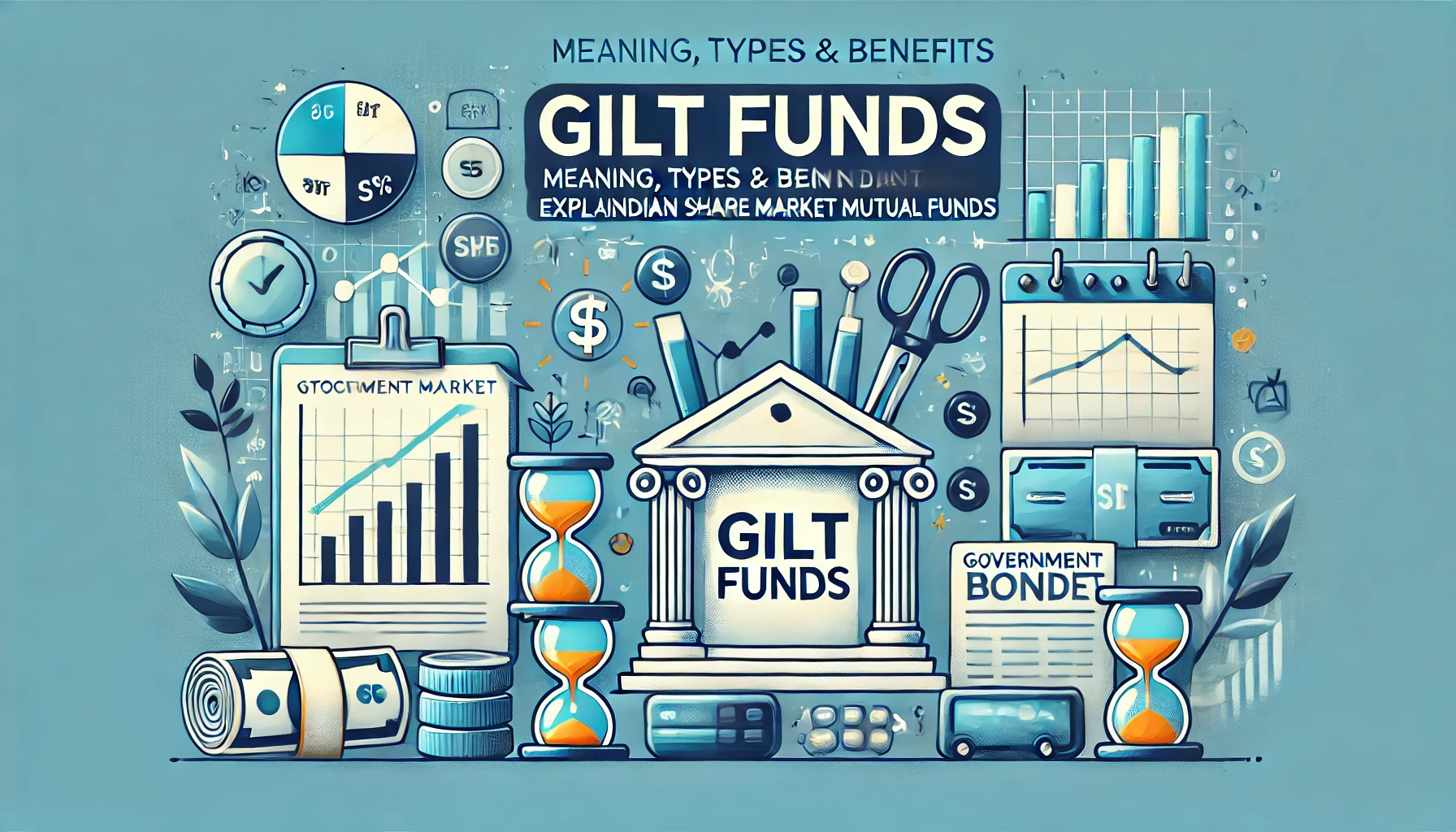
What are Gilt Funds
Investing in mutual funds can be an excellent way to grow your wealth while managing …
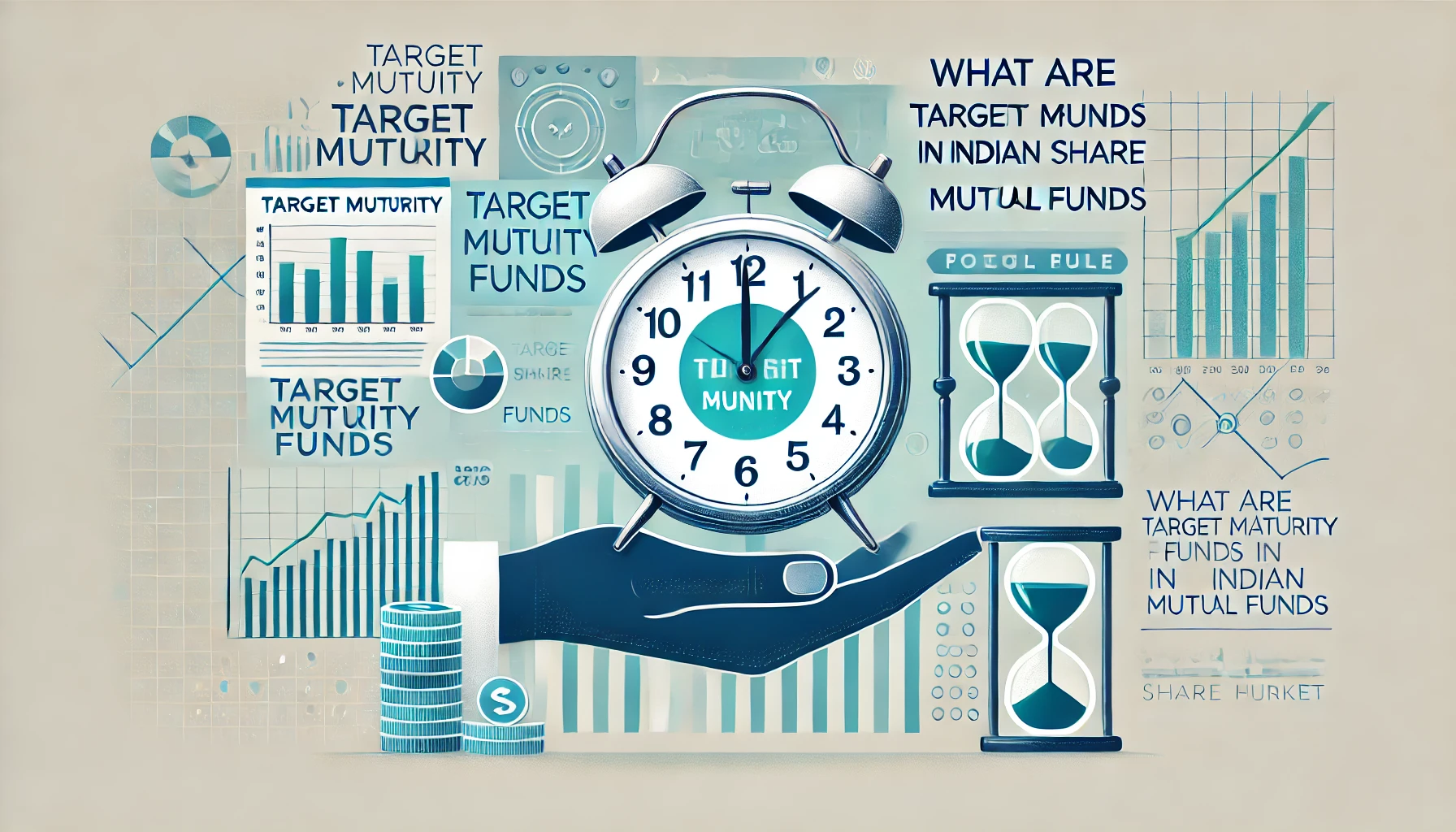
What is Target Maturity Funds?
Target Maturity Funds (TMFs) have gained attention in the Indian share market, offering a unique …

What is KIM?
When investing in Indian mutual funds, investors often come across a document known as the …

Trailing Returns vs Rolling Returns
When analyzing mutual fund performance, understanding returns is crucial for making informed investment decisions. Two …
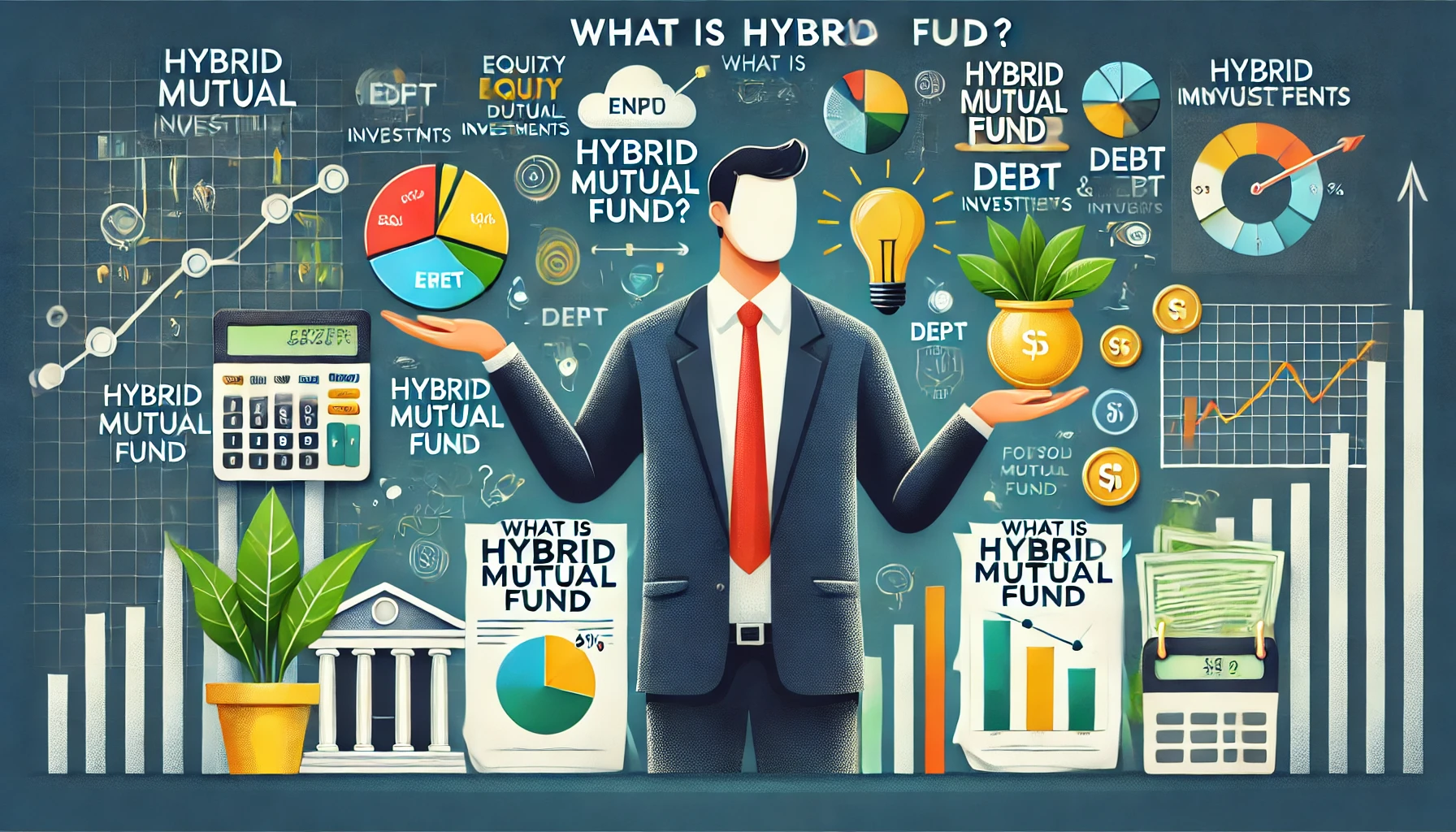
What is Hybrid Mutual Fund?
When investing in mutual funds, you typically aim to find the right balance between risk …
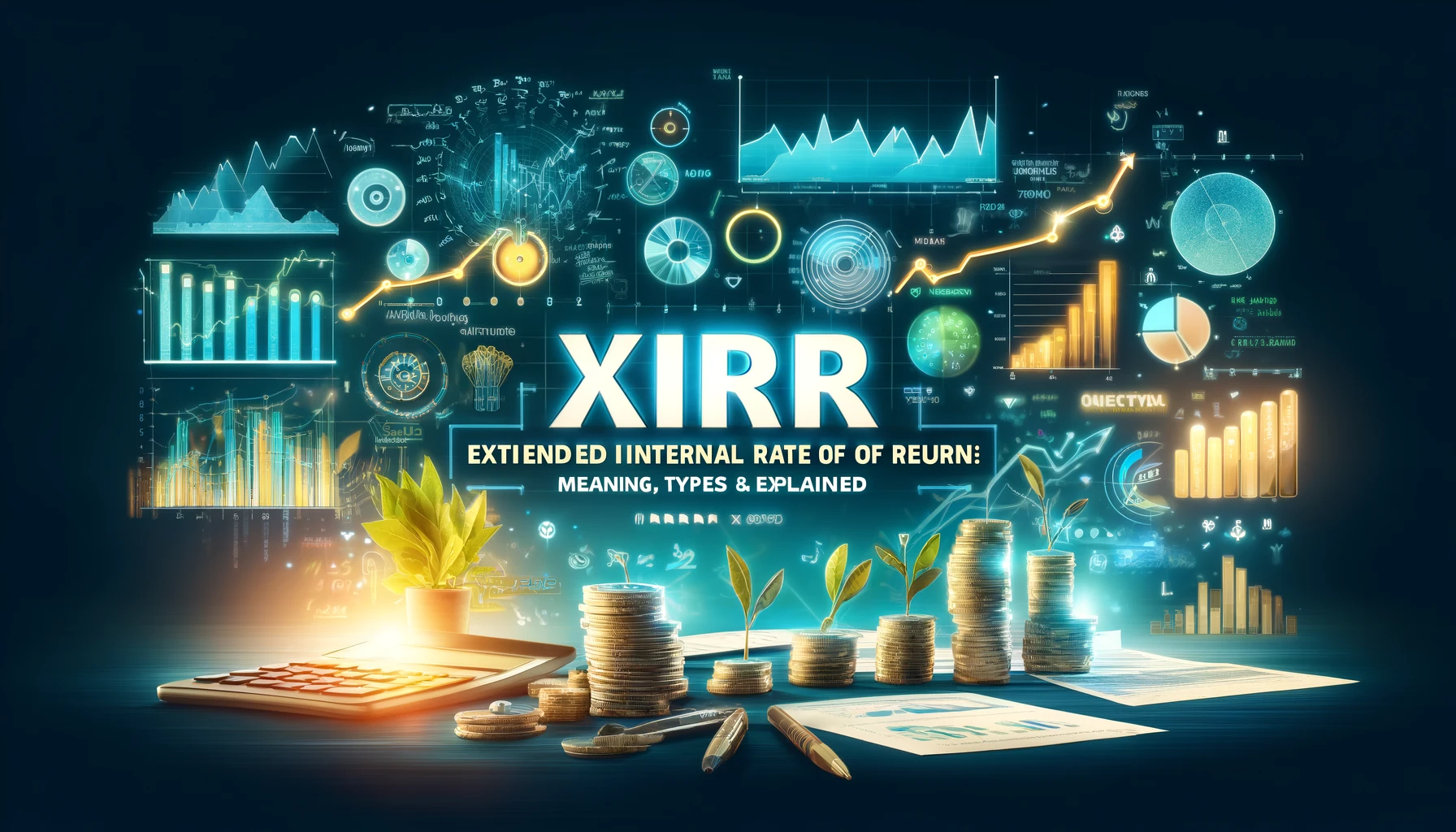
What is XIRR?
Investing in mutual funds is a popular choice for many investors in India, thanks to …

What is the Sharpe ratio?
In the world of mutual fund investing, one of the most crucial aspects to consider …

What is AMFI?
The Indian mutual funds industry has grown exponentially over the past two decades. This growth …

What is Rolling Returns?
Investing in mutual funds requires understanding various performance metrics to make informed decisions. One such …




















